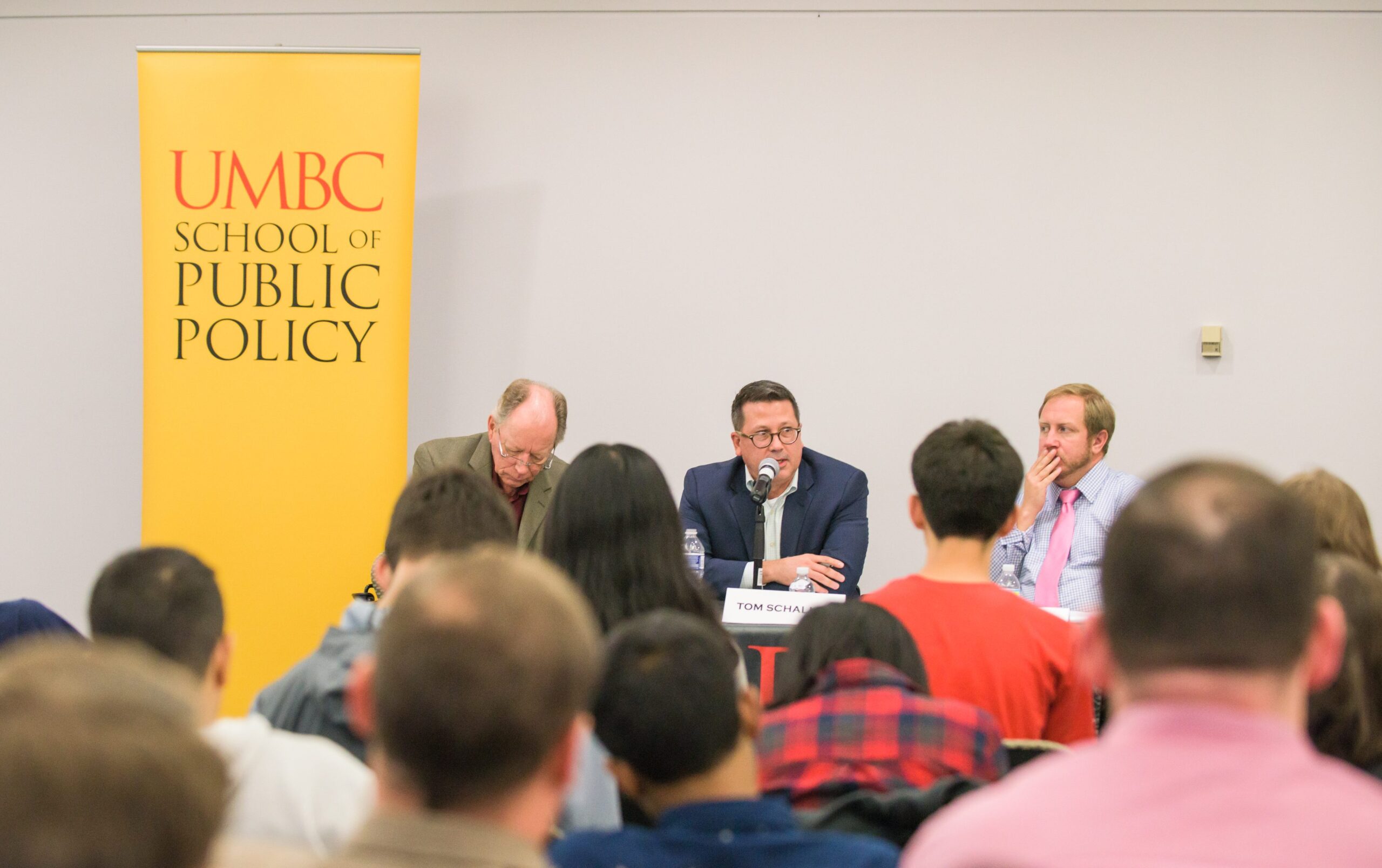Note: This article was updated January 27, 2017.
Donald Trump will be sworn in as the next president of the United States on January 20 after losing the popular vote but winning the Electoral College. Thomas Schaller, professor and chair of political science, recently joined WEAA’s The Marc Steiner Show to discuss the origins of the Electoral College, what it means for the U.S. democracy, and how the election results reflect the U.S. population today.
“The Founding Fathers, I think in one of the most ironic twists of the Electoral College…really didn’t think it would necessarily be the…final selection mechanism,” Schaller said on the program. “In a way, they envisioned the Electoral College often working like the nomination processes do now.”
He suggested the founders’ intent was to use the Electoral College as a process for winnowing down the field to a few top contenders, with presidential elections ultimately being sent to the House of Representatives for a vote if none of these more regional candidates claimed a majority.
Schaller also discussed how the Electoral College result in the 2016 presidential election reflects the high degree of partisanship in contemporary American politics. He noted that President Obama carried 44 of the 50 largest counties in 2012, and Hillary Clinton carried 30 of the 35 largest cities, while Donald Trump received, in many cases, 80 percent or higher of the popular vote in white, rural counties.
“We have a situation where all this talk of red America and blue America… We don’t talk to each other,” said Schaller. He suggested, “there is a certain truth to that as we have one America concentrated in the cities and inner suburbs, and we have another America that lives physically far from those areas and maybe psychologically farther from those areas.”
Schaller is an expert in American politics and American political institutions and author of The Stronghold: How Republicans Captured Congress but Surrendered the White House (Yale University Press, 2015) and Whistling Past Dixie: How Democrats can Win without the South (Simon and Schuster, 2006). He was joined on the show by David Dayen, contributor to The Nation and the author of Chain of Title: How Three Ordinary Americans Uncovered Wall Street’s Great Foreclosure Fraud.
Listen to the full segment, “Electoral College roundup.”
Update: Ian Anson, an assistant professor of political science, and Nick Miller, professor emeritus of political science, appeared on Maryland Public Television’s “Direct Connection” program to discuss the Electoral College and if there’s any possibility of the system changing in the future. Watch the full segment in the video below.
Image: Thomas Schaller speaks during the 2016 Post-Election Forum at UMBC. Photo by Marlayna Demond ’11 for UMBC.
Tags: CAHSS, PoliticalScience

